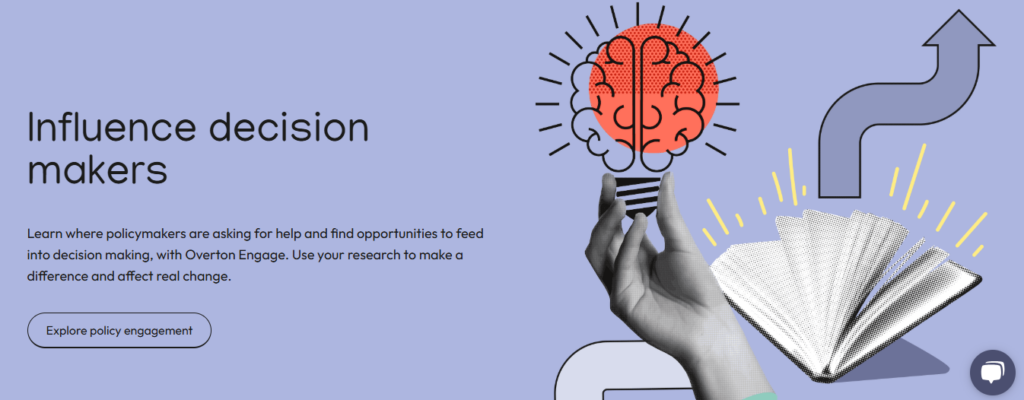How does academic research find its way into government policies, global reports, or public debates? That question sits at the heart of Overton — the world’s largest database of public policy documents. Euan Adie, Overton’s founder, shared the platform’s origin story, its unique role in mapping research-policy connections, and valuable advice for researchers — especially in Africa — aiming to boost their policy impact.
Watch the recording
The slides are available at https://africarxiv.ubuntunet.net/handle/1/1768
Speaker’s profile
Euan Adie
Euan Adie is the CEO of Overton, a London-based company that tracks and indexes the research, ideas, and influences behind government policy worldwide.
Before founding Overton, he established and led Altmetric, a company that tracks the attention paid to scholarly works online. Altmetric was acquired by Digital Science in 2015.
Euan has also worked at Nature Publishing Group and as a researcher in medical genetics at the University of Edinburgh.
Why Overton Exists
Euan’s fascination with research beyond academia deepened during Brexit and COVID-19, when the urgency of evidence-informed policymaking became impossible to ignore. He saw a gap: data collection and analysis tools that could make it easier to track and understand the use of research in real-world decisions.
Unlike platforms that focus on journal citations, Overton centers on policy documents and the people who produce them — mapping their connections to research, media, and other influence networks. Its breadth is unmatched, covering millions of full-text policy papers from across the globe.
What the Data Reveals About Research and Policy
The Overton database has surfaced some striking patterns:
- Policy is local first. Governments often rely on domestic research, with a strong bias toward institutions in capital cities.
- Evidence-based policy is a growing ideal — but not a literal reality. Politics, timing, and practicality shape decisions as much as research does.
- Social sciences dominate citations. Disciplines like physics or chemistry are less represented, often because policymakers don’t see immediate relevance — or aren’t aware of potential applications.
- Digital access matters. Countries with better online availability of policy documents, like South Africa, appear more frequently in Overton’s coverage.
The Practical Side of Policy Engagement
Policymakers often work to tight deadlines and may draw on research without formal citations. For academics, this means clarity, relevance, and accessibility are key. Well-structured summaries, actionable insights, and readiness to respond to policy queries make a real difference.
Euan also stressed that impact is about quality, not just quantity. A single meaningful use of research in the right place can outweigh dozens of superficial mentions.
Opportunities for African Researchers
African research is underrepresented in policy — but there’s huge potential to change that. Overton offers free access for academic users, making it easier to track influence and engage with policymakers.
Key strategies include:
- Boost online visibility of research outputs.
- Partner with existing policy–research brokers rather than starting from scratch.
- Engage with regional and global think tanks to widen reach.
- Respond to calls for expertise and tailor communication for policy audiences.
Looking Ahead
Overton plans to keep bridging the gap from both sides — helping policymakers find and use research, while also supporting researchers to navigate the policy space. A big part of the future vision is recognizing and rewarding policy engagement in academia, ensuring the time spent on these activities is valued alongside teaching and publishing.
About the Series
This session was part of a wider initiative to strengthen African research visibility and participation in global scholarly communication. Partners like ORCID and AfricArXiv play a vital role in making African science discoverable, collaborative, and impactful — both on the continent and worldwide.
Explore Overton: https://www.overton.io
If you’d like, I can also rewrite this in a more conversational “storytelling” blog style that would feel like a personal journey piece rather than an informational summary. That would make it even more engaging for general readers.
Related resources
Overton’s website: https://www.overton.io/

About the webinar series
This webinar was co-organized by UbuntuNet Alliance and Access 2 Perspectives as part of the ORCID Global Participation Program.
ORCID is the persistent identifier for researchers to share their accomplishments (research articles, data, etc with funding agencies, publishers, data repositories, and other research workflows.
AfricArXiv is a community-led digital archive for African research communication. By enhancing the visibility of African research, we enable discoverability and collaboration opportunities for African scientists on the continent as well as globally.
